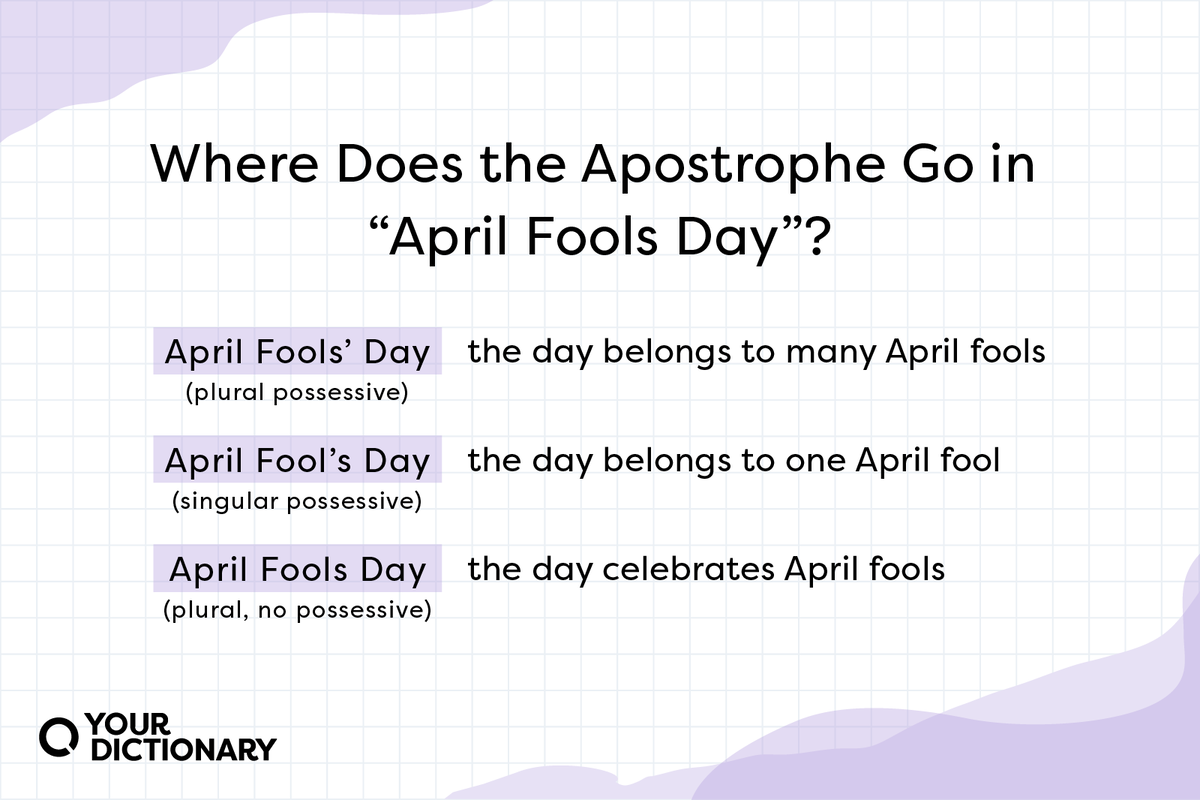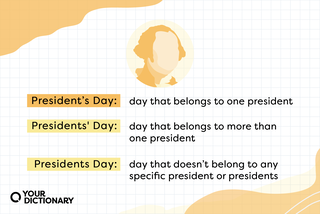
Some people wake up on April Fools’ Day with mischievous glee, while others wake up with a sense of pure dread. But whether you love the tricks of this goofy holiday or hate them, you may wonder about the origin and punctuation of April Fools’ Day — as well as who played the very first April Fools’ trick.
What Is April Fools’ Day?
April Fools’ Day, sometimes called April Fool Day or All Fools’ Day, occurs every April 1st.
Pranksters love to play jokes on their unsuspecting family and friends, who are then the “April fool” for falling for the prank. The prankster then shouts “April Fools!” to let the victim know about the prank.
Many countries around the world celebrate April Fools’ Day, including the United States, India, Sweden, Italy, Ireland, and the United Kingdom (although the British only celebrate until noon).
The Origin of April Fools’ Day
Although no one knows the true origin of April Fools’ Day (which is maybe the ultimate April Fools’ joke), we have a few historical theories about how April 1st became known as the prankster’s holiday.
The Festival of Hilaria
One theory goes back to the Roman festival of Hilaria (“joyful ones”), which was held on the vernal equinox at the end of March.
Celebrants often disguised themselves to trick and mock others during the festivities.
April Fish
Another theory refers to the 16th century switch between the Julian and Gregorian calendars. The first day of the Julian year was April 1st, but the first day of the Gregorian calendar was January 1st.
People who confused these two were known as poisson d’avril (“April fish)” because they were as easily caught in a joke as a fish.
In fact, April Fools’ Day is still known as Poisson d’Avril in France — and you may end up with a paper fish on your back if you end up being the “April fish”!
The Fool’s Errands
However, the most concrete start to the April Fools’ tradition was in 16th-century Flemish poet’s Eduard de Dene’s poem “Refereyn vp verzendekens dach / Twelck den eersten April te zyne plach” (in English, “Refrain on Errand-Day / Which Is the First of April”).
In the poem, a nobleman tricks his servant into running “fool’s errands” because it is the first of April.
The mention of “fool” and “April 1st” suggests that April Fools’ Day was at least known in de Dene’s region of Bruges.
Do You Capitalize “April Fools’ Day”?
April Fools’ Day is a holiday (albeit not an official one), and like all holidays, each word in it is capitalized. Even the shortened version (“April Fools!”) should be capitalized.
However, if you’re referring to a person who was fooled by a prank — an “April fool,” only the word April is capitalized.
- Do you have any plans to trick me on April Fools’ Day?
- The principal announced that all the freshmen were expelled as an April Fools’ Day joke.
- Did you fall for the mud-in-the-coffee prank? April Fools!
- I was the April fool after my friends tricked me into putting salt in my coffee.
Is There an Apostrophe in “April Fools’ Day”?
You can write April Fools’ Day with several apostrophe options, but they all have different meanings — and people disagree about which one to use.
- April Fools’ Day (plural possessive) - the day belongs to many April fools
- April Fool’s Day (singular possessive) - the day belongs to one April fool
- April Fools Day (plural, no possessive) - the day celebrates April fools
AP Style and most American English sources prefer April Fools’ Day with the apostrophe after the “s.” However, the Oxford English Dictionary and many British English sources list April Fool’s Day as a singular possessive.
If you’re being strict with your grammar, follow your style guide’s preference — but you could always blame an error on an elaborate April Fools’ Day joke.
Fast Fact
If you’re writing the exclamation “April Fools!” in response to someone falling for a prank, you can leave the apostrophe off since “April Fools’!” looks a little awkward.
However, this is mostly a spoken convention and not something you’d write.
Examples of April Fools’ Day Pranks
For the most part, April Fools’ jokes are goodhearted and only meant for a laugh. Classic jokes to play on April Fools’ Day include:
- Surprise chocolates - Wrap green grapes in candy foil to make them look like chocolate eggs.
- Brown “e”s - Cut out several letter “e”s in brown paper, put them in a box, and offer “brown ‘e’s” (sounds like brownies) to an unsuspecting April Fool.
- Fake news - Write an article that sounds true enough to be a real news story and photoshop it into a real news page. (Extra points if you’re a news organization with a sense of humor.)
- Ellipses forever - Use a gif of the “Typing a text” ellipses in a text conversation to make it look like you’re typing a very long response.
- Fake bug - Go for the ultimate classic prank with a rubber cockroach or spider in a friend’s shoe, backpack, or desk drawer.

Presidents Day: Origin, History, and Spelling